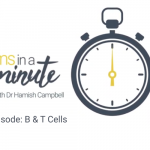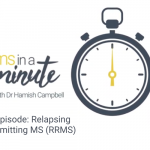Ataxia describes the loss of coordination and unsteadiness that result from the brain’s failure to control the body’s posture and the strength and direction of limb movements.
Ataxia is most often caused by disease activity in the cerebellum (the part of the brain at the back of the skull).
Closely related is DYSMETRIA – which is the lack of coordination of movement, and is a subtype of ataxia. Dysmetria is characterised by when the limb undershoots or overshoots the intended position. It is sometimes described as an inability to judge distance or scale.
Ataxia can develop over time or come on suddenly. Some of the things it may cause are:
- Poor coordination, which can be seen as clumsiness
- Unsteady walk or gait and a tendency to stumble
- Difficulty with fine motor tasks, such as eating, writing or buttoning a shirt
- Change in speech
- Involuntary back-and-forth eye movements (nystagmus)
- Difficulty swallowing
Damage, degeneration or loss of nerve cells in the cerebellum – the part of your brain that controls muscle coordination – results in ataxia. Your cerebellum comprises two ping pong-ball-sized portions of folded tissue situated at the base of your brain near your brainstem.
The right side of your cerebellum controls coordination on the right side of your body; the left side of your cerebellum controls coordination on the left.
Estimates vary, but research suggests as many as four out of five people with MS will have ataxia to some degree, at some point. For most people, the symptom is relatively mild and doesn’t have a major impact on their life.
Treatment for ataxia depends on the cause. Adaptive devices, such as walkers or canes, might help you maintain your independence. Physical therapy, occupational therapy, speech therapy and regular aerobic exercise also might help as well as developing compensatory strategies and doing activities that challenge your sense of balance and coordination, even if you find it hard.
Our MS in a Minute videos were created to provide fast and factual definitions of commonly used terms in MS.
More resources:
- Ataxia (MS Trust – United Kingdom)
- What is Ataxia (National Ataxia Foundation)






